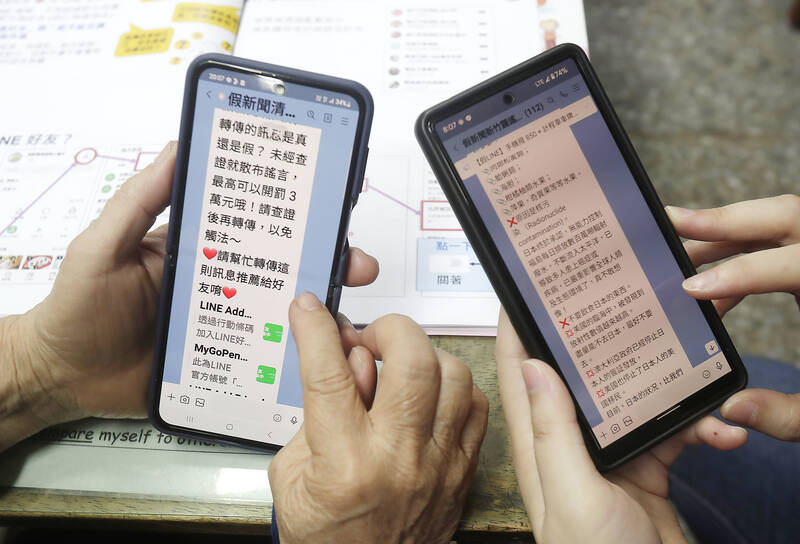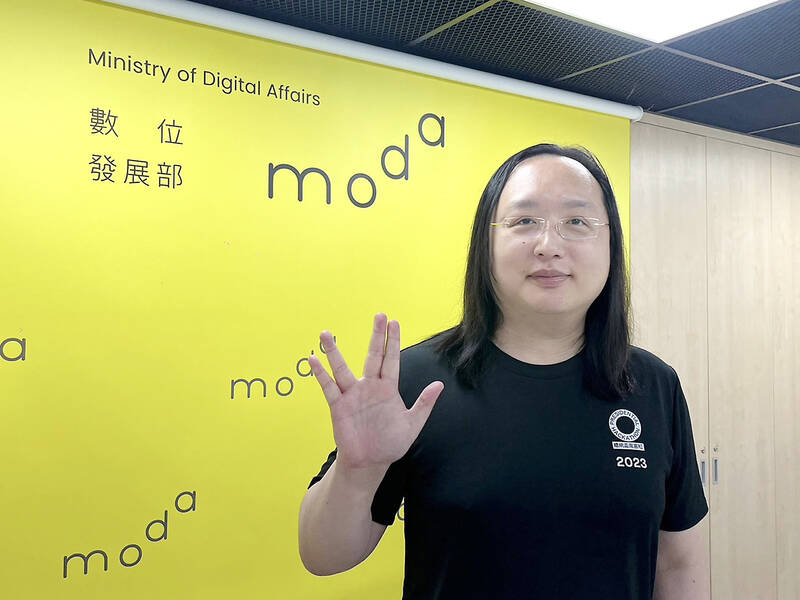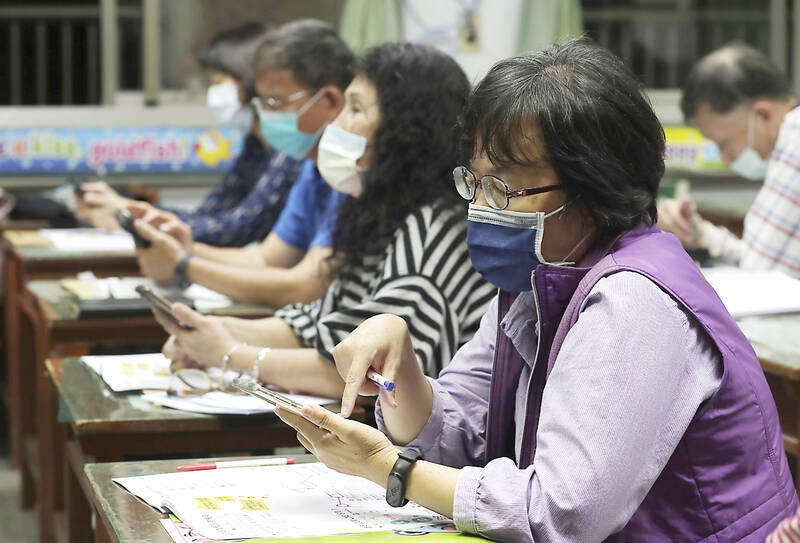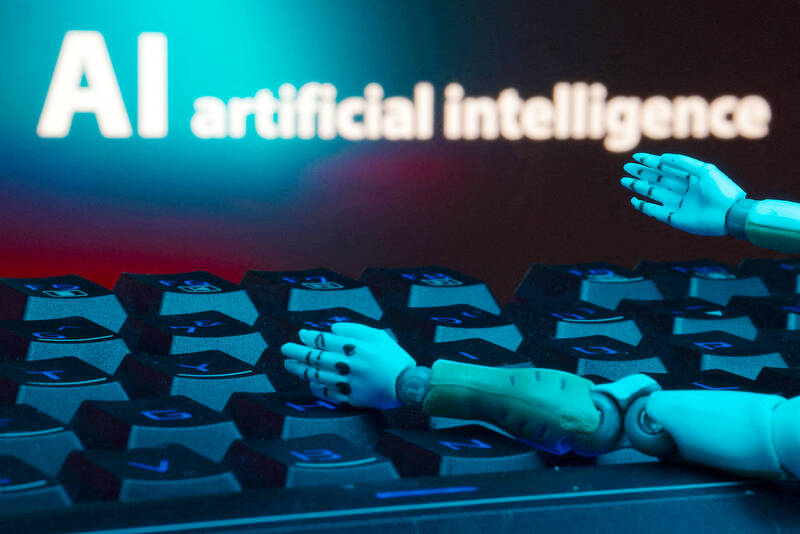Taiwan, widely considered one of the world’s most targeted democracies for foreign disinformation, made headlines last week as it was tapped to lead a new coalition formed by the International Foundation for Electoral Systems (IFES). Convening policymakers and industry experts, the Artificial Intelligence Advisory Group on Elections (AI AGE) will build bridges between democratic governance and AI expertise to address the challenges and opportunities that AI presents in the conduct of free and fair elections.
Taiwan’s invitation was no courtesy. On the contrary, it has become a laboratory for democratic resilience in the AI age. At a time when those in the pay of authoritarian regimes look to undermine our elections through increasingly sophisticated disinformation campaigns, Taiwan’s playbook is seen as not just effective, but essential.
THE WORLD IS TAKING NOTE

Photo: AP
As its peers scramble to address the risks posed by AI, Taiwan has become a sought-after voice in global AI governance. In effect, it has already lived the future others fear, emerging stronger on the other side of AI-fueled disinformation by harnessing the technology’s potential.
Leading the charge is Taiwan’s Cyber Ambassador Audrey Tang (唐鳳), who served as Taiwan’s first digital affairs minister. A headliner at Munich’s Cyber Security Conference and last month’s AI Expo for National Competitiveness in Washington, Tang’s calendar is but one indicator of the importance of Taiwan’s latest key export: its model for digital democracy.
Its invitation to AI AGE offers Taiwan a chance to impart its hard-won lessons, presenting more than 145 countries advised by IFES (including the US) with opportunities to adopt its best practices. The group’s only member from East Asia, Tang’s remarks at its unveiling emphasized that Taiwan’s inclusion was a reflection of the world’s growing appreciation for its government’s approach to AI. It is “crucial that AI is trained to serve the greater good, while unlocking our collective wisdom and building a more accountable and participatory digital society,” Tang said.

Photo: Hsu Tzu-ling, Taipei Times
Out of necessity, Taiwan has devised tools that other democracies have not: building a bulwark that its friends would be wise to adapt before it is too late.
A PLAYBOOK FORGED BY NECCESSITY
Almost thirty years after Taiwan’s first direct presidential election in 1996, new technologies have only emboldened the People’s Republic of China’s (PRC) attempts to dismantle the island’s democracy. Its “three warfares” strategy (三戰) of public opinion warfare, psychological warfare and legal warfare has been adapted to prioritize the use of generative AI (genAI), introducing a more disruptive threat than any of its predecessors. Where traditional models only analyze basic data, genAI is capable of creating original, persuasive content on a massive scale. This makes China’s latest efforts harder to detect and its propaganda far easier to weaponize.

Photo: AP
Cyberattacks against Taiwan already posed a significant problem, soaring thirty-fold ahead of the 2024 election, according to one estimate from Cloudflare. Add genAI to the mix, and the threat level skyrockets. A report by Taiwan’s National Security Bureau in April revealed it had detected a 60 percent spike in falsified content distributed by China using genAI’s capabilities, from 1.33 million items in 2023 to 2.16 million in 2024. Countless fake social media posts, articles, newscasts and even entire books flooded Taiwan’s information ecosystem, with dummy profiles distributing baseless accusations questioning the election’s integrity alongside pro-China and anti-democratic sentiments. The Taiwan FactCheck Center has cataloged a whole host of AI-generated videos intended to cast doubt on the process and its outcomes, including fabricated footage of local politicians and fraudulent images of Xi Jinping commenting on Taiwan’s elections.
MEETING THE MOMENT
The attention paid to the Taiwanese model not only affirms its innovation but also strengthens Taiwan’s international standing despite Beijing’s attempts to isolate it. Its leadership has taken its self-defense seriously, acting quickly but consciously to meet the AI moment.

Photo: Reuters
Its tactics are anchored in its core mission, per Tang, to co-govern AI with the people. This ethos has been the guidepost for Taiwan’s rapid-response initiatives and inspired its blueprint for civic fact-checking, all without compromising its citizens’ ability to exercise their civil rights. This is significant considering the Taiwanese model employs much of the same tech being leveraged against it by autocrats.
Take Taiwan’s rapid response practices. The Ministry of Education’s False Information Prevention Project implemented curriculum guidelines that equip students with the ability to “pre-bunk” online hoaxes, teaching them to spot and flag fake news. Meanwhile, each of the government’s ministries targets attacks en masse, with engineering teams responding to falsehoods in as quickly as 60 minutes with countervailing narratives. Alongside individual pre-bunking, these officials work to meet their fellow citizens where they are: using AI to their advantage as they share up-to-the-minute graphics, short videos and host livestreams to inoculate the public against disinformation.
Then, there is Taiwan’s civic fact-checking infrastructure. As journalist Elaine Chan said in The Guardian last year, a community of external validators have stepped up to assist the government in its fight for the truth. Groups like the Taiwan FactCheck Center and DoubleThink Lab provide citizens with access to needed tools in the pre-bunking phase. China’s operations are formidable, requiring a sizable amount of computing power to counteract. These organizations help meet that need, their presence in turn easing fears of government overreach. One tool, MyGoPen, shows us how AI can be used in election protection, offering access to a LINE account with one-on-one live fact-checking services. Its founder, Charles Yeh (葉子揚), says that AI “speeds up the checking process — helps with comparison, identification and translation,” drawing on an extensive disinformation database collected by the group. But verification of claims still happens manually; a feat considering its agents were handling up to 3,000 claims a day in the lead-up to election day.
Thanks to their efforts, Taiwan’s elections passed without any major incident. But AI’s faculties will continue to evolve and democracies must be prepared going forward.
A ROUTE FORWARD
A playbook can be shared or shelved, its routes run or its game plan sidelined. Taiwan’s inclusion in AI AGE and in countless future forums shows us, however, that the world’s democrats cannot ignore what Vice President Hsiao Bi-Khim (蕭美琴) has come to call “the AI Island.”
While the kind of sabotage Taiwan faces is distinct and the tech’s full potential has yet to be fully realized, it will advance. Innovators and benefactors, famous and infamous, will continue to fuel the rise of the AI industrial complex. But if the world is serious about securing the future of democracy in the internet age, Taiwan’s resilience must become the norm, not the exception.
Duncan Barron is a voter protection specialist who worked for the Democratic Party of Virginia and the Democratic Congressional Campaign Committee (DCCC).
A masters candidate at Virginia Tech’s School of Public & International Affairs, he will begin his Juris Doctor at American University’s Washington College of Law this fall.

The Lee (李) family migrated to Taiwan in trickles many decades ago. Born in Myanmar, they are ethnically Chinese and their first language is Yunnanese, from China’s Yunnan Province. Today, they run a cozy little restaurant in Taipei’s student stomping ground, near National Taiwan University (NTU), serving up a daily pre-selected menu that pays homage to their blended Yunnan-Burmese heritage, where lemongrass and curry leaves sit beside century egg and pickled woodear mushrooms. Wu Yun (巫雲) is more akin to a family home that has set up tables and chairs and welcomed strangers to cozy up and share a meal

Dec. 8 to Dec. 14 Chang-Lee Te-ho (張李德和) had her father’s words etched into stone as her personal motto: “Even as a woman, you should master at least one art.” She went on to excel in seven — classical poetry, lyrical poetry, calligraphy, painting, music, chess and embroidery — and was also a respected educator, charity organizer and provincial assemblywoman. Among her many monikers was “Poetry Mother” (詩媽). While her father Lee Chao-yuan’s (李昭元) phrasing reflected the social norms of the 1890s, it was relatively progressive for the time. He personally taught Chang-Lee the Chinese classics until she entered public

Last week writer Wei Lingling (魏玲靈) unloaded a remarkably conventional pro-China column in the Wall Street Journal (“From Bush’s Rebuke to Trump’s Whisper: Navigating a Geopolitical Flashpoint,” Dec 2, 2025). Wei alleged that in a phone call, US President Donald Trump advised Japanese Prime Minister Sanae Takaichi not to provoke the People’s Republic of China (PRC) over Taiwan. Wei’s claim was categorically denied by Japanese government sources. Trump’s call to Takaichi, Wei said, was just like the moment in 2003 when former US president George Bush stood next to former Chinese premier Wen Jia-bao (溫家寶) and criticized former president Chen

President William Lai (賴清德) has proposed a NT$1.25 trillion (US$40 billion) special eight-year budget that intends to bolster Taiwan’s national defense, with a “T-Dome” plan to create “an unassailable Taiwan, safeguarded by innovation and technology” as its centerpiece. This is an interesting test for the Chinese Nationalist Party (KMT), and how they handle it will likely provide some answers as to where the party currently stands. Naturally, the Lai administration and his Democratic Progressive Party (DPP) are for it, as are the Americans. The Chinese Communist Party (CCP) is not. The interests and agendas of those three are clear, but